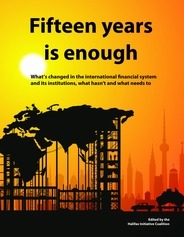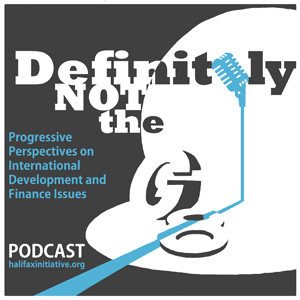Fifteen years is enough - March 2010
 What’s changed in the international financial system and its institutions, what hasn’t and what needs to
What’s changed in the international financial system and its institutions, what hasn’t and what needs to
Executive Summary
Back in 1995, the G7 met in Halifax during a “time of change and opportunity.” The meeting took place in a context of mounting deficits and debt crises in countries in the South; in the wake of economic collapse in Mexico; and amid strong global criticism from civil society, the media and governments about the World Bank and International Monetary Fund’s (IMF) austere neo-liberal structural adjustment policies.
A lot has changed since then, partly in response to the Halifax G7 Summit and subsequent G7 and G8 meetings. Too many of these improvements, however, exist only on paper. Beyond the surface, the neo-liberal, market-oriented bias that guides the Bank and Fund’s agenda and thinking has not altered.
The 2010 G8 Summit in Toronto in 2010 takes place during another “time of change and opportunity.” The financial crisis has spurred many civil society organizations (CSOs) to insist on far-reaching changes to the global financial system and its institutions. Clearly, as this publication will illustrate, 15 years of refusing to deal with the manifest shortcomings of the global economic system is enough.
 In June 2010, the Halifax Initiative launched the first in a series of radio documentary -type podcasts under the rubric of "Definitely NOT the G8" just ahead of the 2010 Group of Eight (G8) and Twenty (G20) meetings in Huntsville and Toronto, Canada on June 25-27 2010.
In June 2010, the Halifax Initiative launched the first in a series of radio documentary -type podcasts under the rubric of "Definitely NOT the G8" just ahead of the 2010 Group of Eight (G8) and Twenty (G20) meetings in Huntsville and Toronto, Canada on June 25-27 2010.